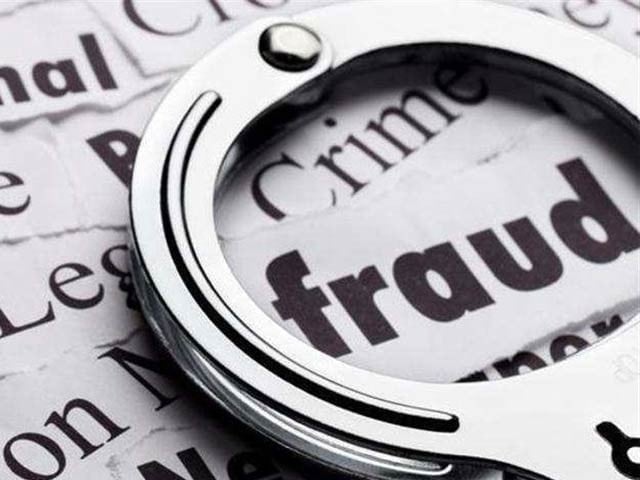In a statement that raises questions about the effectiveness of the regulatory framework, Finance Minister Muhammad Aurangzeb said on Thursday that Pakistan’s large corporate firms and their white-collar management were involved in a staggering Rs3.4 trillion annual sales tax fraud.
Aurangzeb stated during a press conference held at the Federal Board of Revenue (FBR) headquarters that the FBR has established fraud worth Rs227 billion in five major industries.
The finance minister stated that tax evasion and fraud had resulted in a tax gap of Rs3.4 trillion, adding that tax evasion could be measured by the fact that only 14% of 300,000 manufacturers were registered with the FBR.
Two months after Rashid Langrial was appointed chairman of the FBR, the tax fraud was discovered. According to the finance minister, these businesses were avoiding sales tax by falsely claiming 25% of total sales for input tax adjustment at benchmark rates of 4% to 7%.
The statement raises serious concerns regarding the credibility of four significant external tax audit firms and the efficiency of Pakistan’s regulatory system. The FBR, Pakistan’s Securities and Exchange Commission, examines and verifies these businesses’ balance sheets in conjunction with audit firms.
Both explicitly and implicitly, Pakistan’s total defense expenditures are greater than the Rs3.4 trillion sales tax fraud. Aurangzeb stated that only Rs3.1 trillion of the potential Rs6.5 trillion in sales tax revenue was collected. He added that the management of those businesses was directly involved in the fraud and that their finance departments assisted them.
FBR Chairman Rashid Langrial stated, “I appeal to chief finance officers of corporate sector firms that they should not sign the next sales tax return statements that are due for October 15 until these are honestly prepared.” He added that a lot of the registered businesses were also using fake and flying invoices, misreporting turnover, and making claims for excess input tax.
In accordance with established international standards, value-added tax (VAT) is used to collect sales tax. In this mode, buyers place their trust in business entities to collect taxes.
The finance minister stated that he would not comment on the question of whether Pakistan should abolish the value added-based sales tax system and establish a single rate of 10%.
The standard sales tax rate is 18%, but it frequently rises to 25 percent. However, FBR Member Inland Revenue Policy Hamid Atiq Sarwar revealed that the effective sales tax rate was only 3%, indicating a significant amount of tax evasion and leakage.
The chairman of the FBR stated that the prime minister had already approved the strengthening of the audit oversight board regarding the participation of large audit firms.
A study on the sectors of steel, cement, beverages, batteries, and cement was presented by the finance minister. It has been discovered that there are malpractices in all business sectors, and the majority of entities claim that their input tax is higher than what is required by industry standards and best practices.
Aurangzeb stated that 33 large companies in the iron and steel industry, accounting for more than half of all reported sales, claimed excess input tax of Rs29 billion to avoid sales tax. The purchase of scrap metal and coal was the primary source of the dubious and fraudulent input tax.
As a percentage of total sales, the benchmark input tax adjustment was 7%, but businesses claimed up to 25%.
The chairman of the FBR stated, “It is nothing more than a lie and fraud by big steel companies,” noting that the benchmark threshold was reduced to 4% following the registration of cases.
The finance minister revealed that 19 cement companies claimed Rs18 billion in excess input tax in fiscal years 2023 and 2024. The purchase of coal was the primary source of the dubious and fake input tax.
Aurganzeb went on to say that four large cement companies, each accounting for 54% of total sales, were chosen for the analysis and found to be involved in massive tax fraud.
He stated that a significant portion of the battery industry claimed excess input tax of Rs11 billion after an analysis of six active cases representing 99% of total sales. The purchase of lead was the primary source of the dubious and fake input tax.
The battery industry’s benchmark input tax adjustment was 8%, but the businesses claimed up to 15%.
In a similar vein, some of the 16 currently pending cases in the industry that produces aerated water, which accounts for 99% of total sales, claimed excess input tax of Rs15 billion in the previous fiscal year. The purchase of sugar, plastics, and services was the primary source of the dubious and fake input tax.
Coca-Cola International claimed a benchmark tax adjustment rate of 7% in the beverage industry, while other businesses claimed rates as high as 20%.
Tax evasion is primarily brought about by the textile industry. According to the finance minister, a segment-by-segment analysis of 228 active cases of spinning, weaving, and composite units found that many of them claimed Rs169 billion in excess input tax.
The purchase of services, chemicals, coal, packaging, and other irrelevant materials was the primary source of the dubious and fraudulent input tax.
Langrial stated, “We cannot allow these businesses to continue thriving on the basis of fraudulent business practices.”
He said, “The biggest fraud is the input tax adjustment system,” but he said that a single-stage sales tax system would not be enforced to stop fraud.
The finance minister stated that the FBR had discovered and gathered evidence of tax fraud in a variety of industries, including 11 cases involving the battery industry, 897 cases involving the iron and steel industry, and 253 beneficiaries of false input tax claims on coal purchase.
He emphasized that sales tax fraud was a criminal offense that carried severe penalties, including heavy fines and imprisonment for up to ten years.
According to the FBR, owners of businesses, sole proprietors, partners, directors, CEOs, CFOs, and other authorized individuals will be subject to action.



